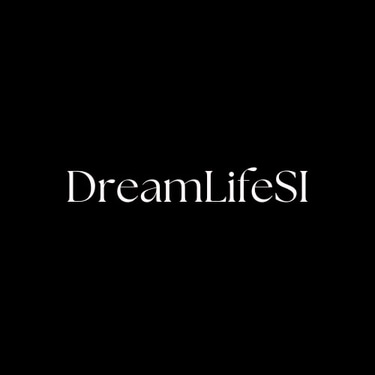Unlock True Self-Discovery Through Elimination
PERSONAL GROWTH
By Sia Imime
3/21/20253 min read


Disclosure: This article contains affiliate links, meaning that if you purchase through them, I may earn a small commission at no extra cost to you. I only recommend products that I believe will add value to your personal growth journey.
"To Know Who You Are, You Must Know Who You Are Not"
The Paradox of Self-Discovery
One of the greatest paradoxes of self-discovery is that knowing yourself often begins with knowing who you are not. The ancient Greek aphorism "Know Thyself" may seem straightforward, yet psychology, sociology, and spirituality suggest that self-knowledge is a process of elimination rather than immediate revelation. By identifying what does not align with your values, beliefs, and authentic self, you refine your identity and create a life rooted in clarity and purpose.
The Psychological Framework: Identity Through Contrast
Carl Jung, one of the pioneers of analytical psychology, introduced the concept of individuation—the process by which a person becomes their true self by differentiating from external influences. According to Jung, true self-awareness arises when we distinguish between the "persona" (the mask we wear for society) and the "shadow" (the unconscious aspects we repress).
Scientific Backing:
A study published in The Journal of Personality and Social Psychology (Swann et al., 2007) found that individuals who engage in self-reflection by analyzing their misalignments—such as past relationships, failed career choices, or dissonant social circles—experience greater self-clarity and life satisfaction. Recognizing what does not serve us allows for intentional self-creation.
📌 My Pick: "The Undiscovered Self" by Carl Jung – A deep dive into understanding the psyche and the journey toward self-awareness.
Sociological Perspectives: Identity Formation in Society
Sociologists argue that our sense of self is deeply influenced by societal expectations, cultural norms, and group affiliations. Emile Durkheim, a founder of modern sociology, emphasized that our identity is shaped by our social roles, yet true self-actualization occurs when we differentiate from collective conditioning.
Key Sociological Insights:
Role Conflict: When we experience discomfort in a given role (e.g., a corporate job that feels suffocating or a social circle that feels inauthentic), it signals a misalignment with our core self (Mead, 1934).
The Looking-Glass Self: Charles Cooley (1902) theorized that we define ourselves through the perception of others. However, breaking free from external validation is essential for true self-realization.
📌 My Pick: "The Four Agreements" by Don Miguel Ruiz – A spiritual guide to shedding societal expectations and embracing authenticity.
Spiritual Wisdom: The Art of Shedding Illusions
Across spiritual traditions, the idea of self-discovery through negation is a recurring theme.
Hinduism & Advaita Vedanta: The phrase “Neti, Neti” (meaning "not this, not that") teaches that by discarding what is not our true essence, we arrive at self-realization.
Buddhism: The concept of "Anatta" (no-self) posits that attachment to a fixed identity leads to suffering, and true liberation comes from releasing false identifications.
Stoicism: Marcus Aurelius advocated self-examination, stating, “Reject your sense of injury and the injury disappears.” In other words, when you remove what is not truly yours (such as limiting beliefs and societal labels), you free yourself.
📌 My Pick: "The Untethered Soul" by Michael A. Singer – A transformative read on spiritual self-discovery and inner freedom.
Practical Steps: How to Know Who You Are by Knowing Who You Are Not
1. Identify Energy Drainers
Observe which people, environments, and activities deplete your energy rather than nourish it. If something consistently makes you feel anxious, small, or inauthentic, it’s not aligned with your true self.
2. Analyze Your Past Mistakes as Data, Not Failure
Every failed relationship, misaligned career path, or wrong decision serves as valuable information. Ask yourself: What did this teach me about what I do not want?
3. Question Societal Conditioning
Are your life goals truly yours, or are they inherited from family, culture, or social expectations? Challenge beliefs that feel imposed rather than chosen.
4. Use the Process of Elimination
Instead of seeking a rigid identity, remove what is false. Just as a sculptor chisels away excess stone to reveal the masterpiece within, your self is uncovered through subtraction, not addition.
📌 My Pick: "Atomic Habits" by James Clear – Learn to break habits that don’t align with your authentic self and build ones that do.
Final Thoughts: The Power of Self-Definition
Knowing who you are by knowing who you are not is a liberating process. It removes the weight of external expectations, failed experiences, and false identities, leaving behind an authentic and empowered version of you. As you strip away what does not resonate, you will naturally gravitate toward what feels true.
💡 Reflect and Share: What is one belief, relationship, or habit you have let go of that helped you better understand yourself?
Tags: self-discovery, identity formation, know thyself, Carl Jung, shadow work, spiritual awakening, authenticity, personal growth, breaking societal norms, psychology of self
